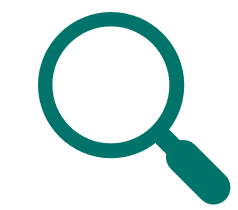Search
News categories
UNESCO: Guidelines for regulating digital platforms & Global Conference
A multistakeholder systemic regulatory approach under the supervision of independent regulatory bodies
 EPRA input: Maria Donde, EPRA Chairperson Ad Interim, will represent and intervene on behalf of EPRA at the conference. In this regard, please feel free to send to the EPRA Secretariat, ahead of the event, any view on the guidelines that you would like to be shared at this occasion.
EPRA input: Maria Donde, EPRA Chairperson Ad Interim, will represent and intervene on behalf of EPRA at the conference. In this regard, please feel free to send to the EPRA Secretariat, ahead of the event, any view on the guidelines that you would like to be shared at this occasion.
Ahead of its Global Conference "Internet for Trust" on 21-23 February 2023 in Paris, UNESCO published draft "Guidelines for regulating digital platforms: a multistakeholder approach to safeguarding freedom of expression and access to information" on 8 February.
These timely high-level guidelines for member States and relevant stakeholders aim to secure a regulation of platforms that guarantee freedom of expression and access to accurate and reliable information by:
- enhancing a legal and regulatory framework consistent with international human rights standards
- supporting a global multistakeholder shared space to debate and share good practices
- recommending co and self-regulatory tools and processes to keep online players accountable towards the society.
The draft guidelines outline the role and responsibilities of various stakeholders such as digital platforms but also States, intergovernmental organisations and civil society. They promote a systemic regulatory approach, focused on the structures and processes put in place by "digital platforms that allow users to disseminate content to the wider public” (including social media networks, messaging apps, search engines, app stores and content sharing platforms).
The policies and operations of digital platforms must comply with five key principles, i.e. being:
Human-rights-based // Transparent // Empowering // Accountable // Due diligence (human rights risk assessment)
 The draft guidelines highlight the crucial preconditions for an independent regulator and call for strengthening the independence and transparency of regulatory systems. Any regulatory system should be:
The draft guidelines highlight the crucial preconditions for an independent regulator and call for strengthening the independence and transparency of regulatory systems. Any regulatory system should be:
-
sufficiently and transparently funded
-
“independent and free from economic or political pressures"
-
based on "an independent merit-based process of members' appointment, overseen by an oversight body” and a duly justified and thorough dismissal process
-
transparent regarding any possible conflict of interest among its members.
-
accountable to an independent body
-
expert in international human rights law.
The guidelines will be presented and discussed at the Global Conference Internet for Trust on 21-23 February 2023. A final version is expected in the months following the conference.
The Global Conference Internet for Trust
Taking forward the Windhoek+30 Declaration on Information as a Public Good, the event will gather ministers, regulators, judicial actors, the private sector, the UN family, civil society, academia, intergovernmental organisations and the technical community to discuss the regulation of digital platforms and the proposed guidelines.
The conference will be held at UNESCO's headquarters in Paris on 21-23 February. Registration is open until 17 February 2023.
The EPRA Board & Secretariat
Countries
See also
- Unesco: New version of the Guidelines for regulating digital platforms posted on 12 May, 2023
